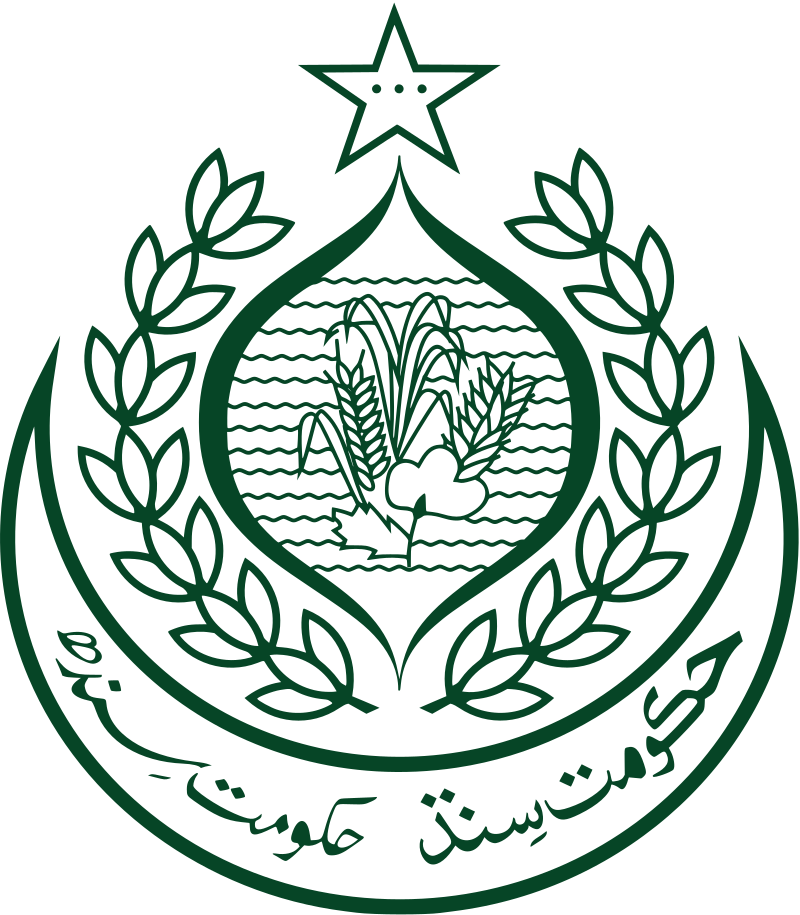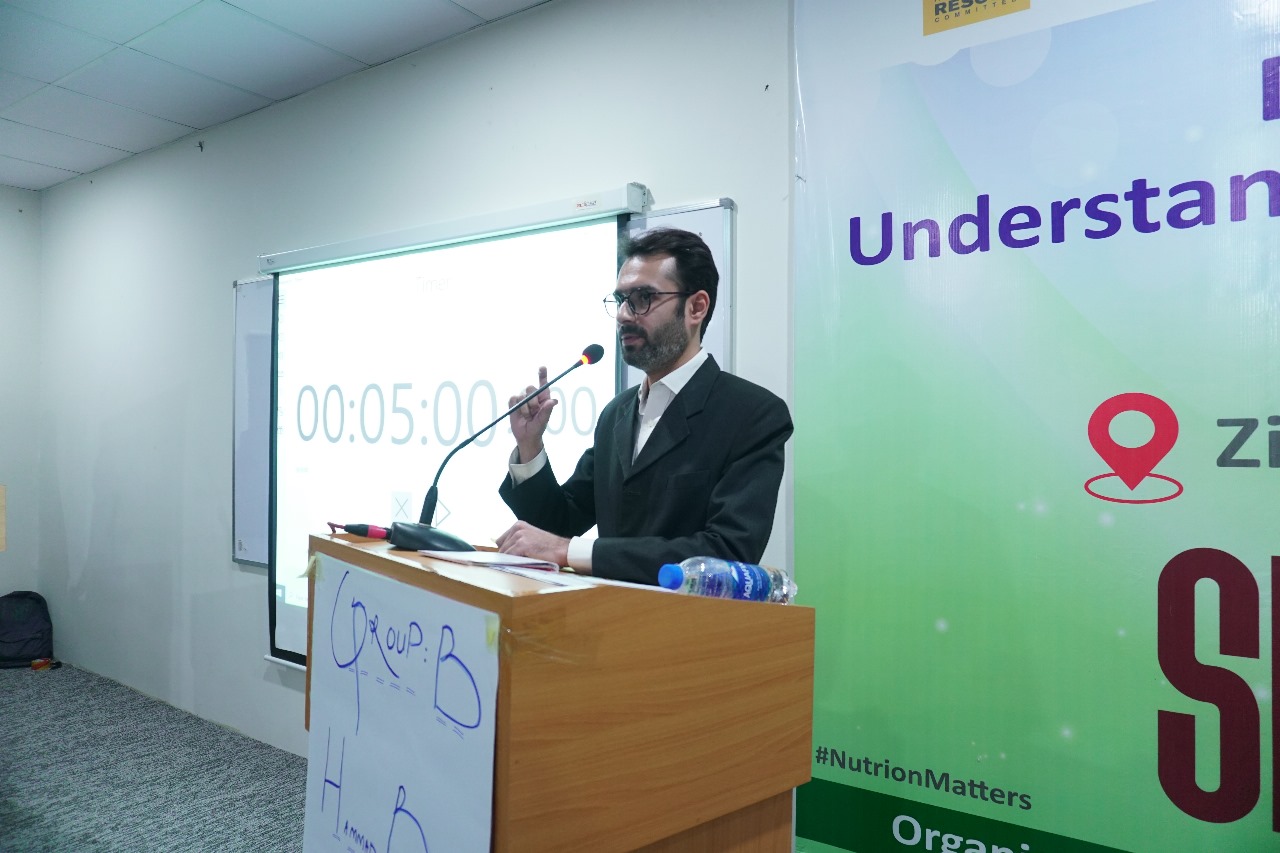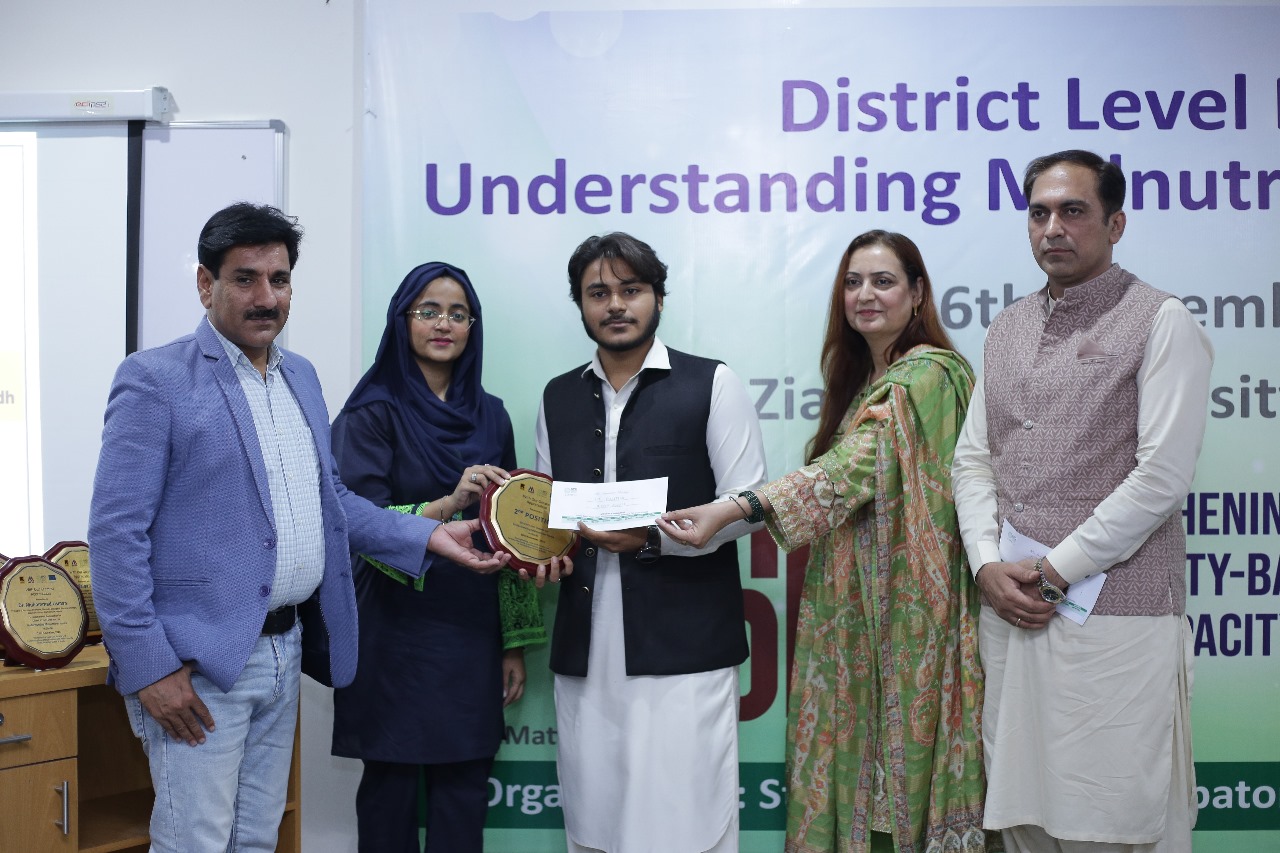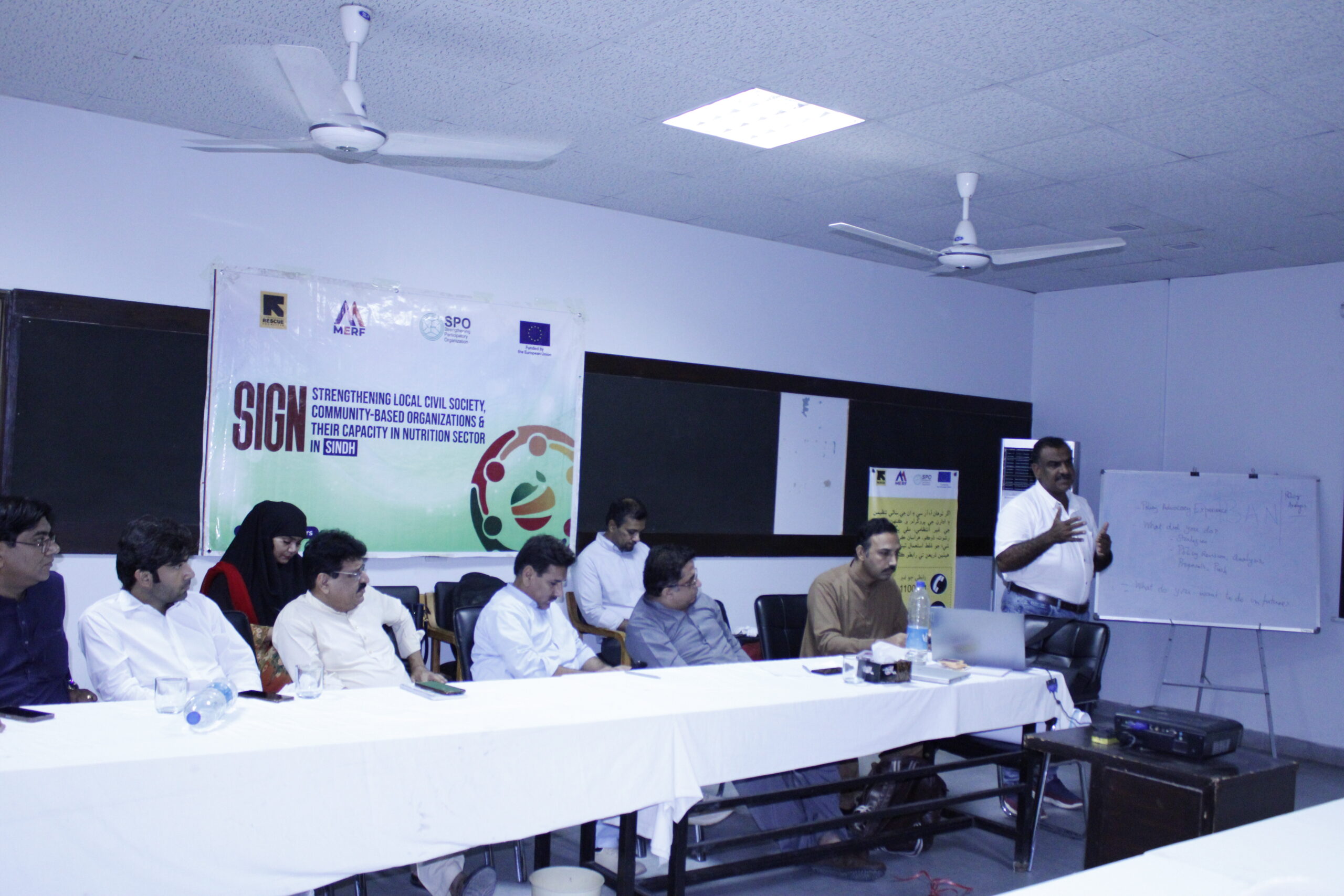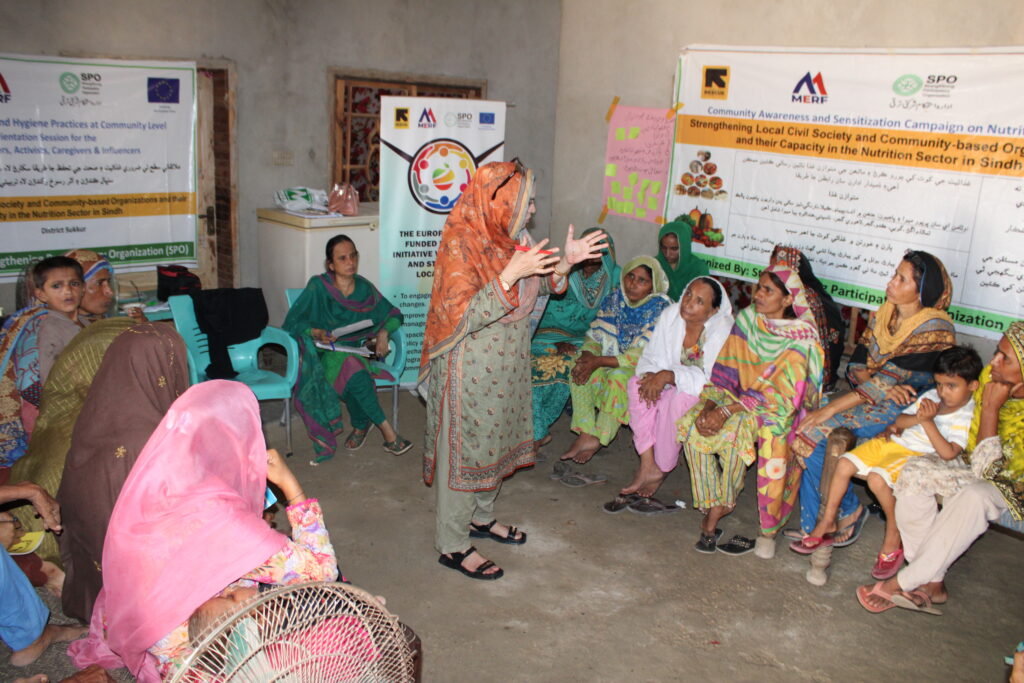
Training of Trainers (TOT) on Combating Malnutrition in Sindh
Equipping Community Leaders to Tackle Malnutrition
Hosted by Strengthening Participatory Organization (SPO), the three-day Training of Trainers (TOT) on malnutrition in Sindh aimed to build the capacities of community leaders, CSO representatives, and nutrition practitioners. This comprehensive training, conducted through interactive training techniques and hands-on activities, focused on understanding malnutrition, promoting community-based nutrition solutions, and developing effective training delivery skills. Participants gained practical knowledge and tools to implement impactful interventions in their communities, paving the way for sustainable improvements in nutrition and health.
The program commenced with an introductory session that included registration, welcoming remarks, and a recitation of the Holy Quran, fostering a respectful and inclusive environment. Trainers and participants engaged in ice-breaking activities to establish rapport and set expectations. Sessions began with a detailed exploration of malnutrition types, classifications, and causes. Trainers used charts, infographics, and statistical data to highlight the severity of malnutrition in Sindh. Participants worked in groups to identify district-specific factors contributing to malnutrition, such as poverty, food insecurity, and lack of awareness. These discussions laid the foundation for understanding the scale and complexity of the issue.
Building on this, the training introduced Community-Based Management of Acute Malnutrition (CMAM) interventions in Sindh, which include community outreach, Outpatient Therapeutic Programs (OTP), and Stabilization Centers (SC). Through case studies and group activities, participants designed CMAM interventions for hypothetical villages, focusing on practical solutions for identifying and managing malnutrition cases. Referral pathways for malnutrition were also emphasized, with participants role-playing scenarios to ensure effective communication and continuity of care.
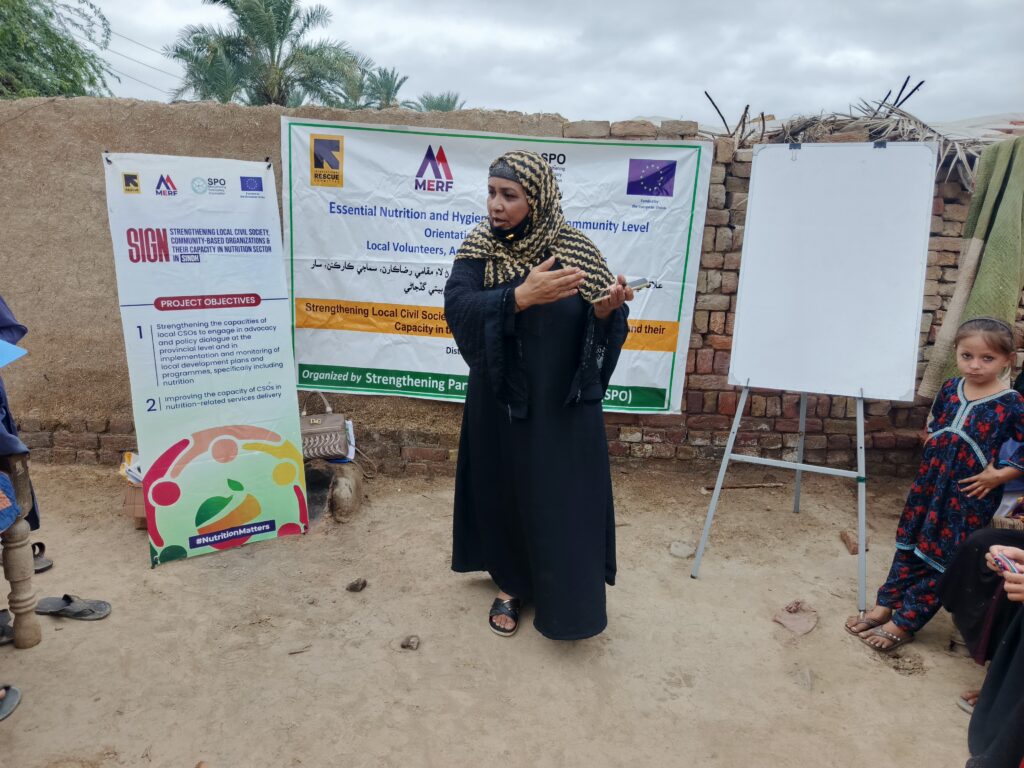
Another crucial aspect of the TOT was Behavior Change Communication (SBCC) in nutrition, where participants learned to craft culturally appropriate messages to promote nutrition and hygiene. Practical exercises included designing community campaigns addressing specific nutrition challenges. Trainers demonstrated hygiene and malnutrition prevention practices, such as proper handwashing techniques and safe food storage methods, underscoring their role in improving health outcomes. Sessions also emphasized the empowerment of caregivers, focusing on balanced diets and addressing myths surrounding child feeding practices. Role-playing activities allowed participants to tackle real-world challenges within their communities, further strengthening caregiver education in child nutrition.
On the final day, participants were trained on structuring and delivering effective training sessions. They explored techniques for engaging adult learners and creating interactive learning environments to ensure knowledge retention. A closing ceremony celebrated participants’ commitment, with certificates awarded in recognition of their active participation. Post-training evaluations revealed significant knowledge improvements and satisfaction with the training content and methodology.
This TOT program successfully equipped participants with the skills and strategies for capacity building for nutrition trainers to combat malnutrition at the community level. By integrating CMAM interventions in Sindh, Behavior Change Communication in nutrition, and caregiver education in child nutrition, the training laid the groundwork for sustainable interventions. It enabled trainers to drive impactful nutrition-focused community engagement, ensuring lasting improvements in Sindh’s nutrition landscape.

